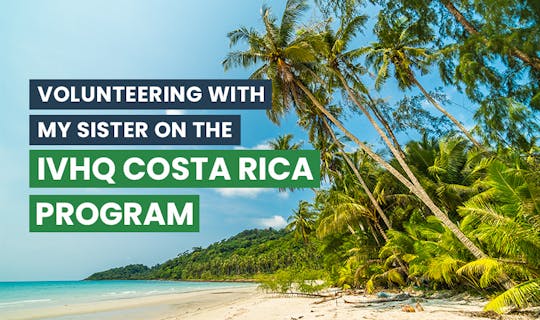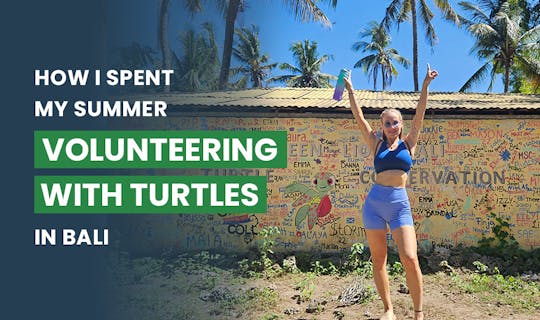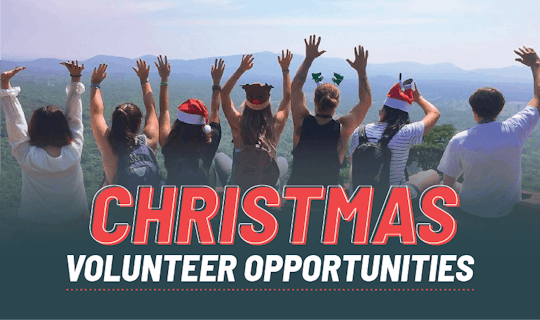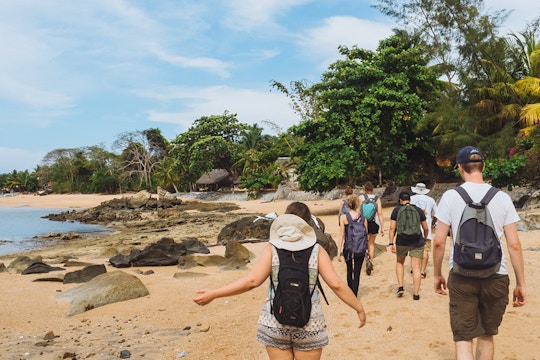I gained so much from this program. I would totally recommend to anyone willing to push themselves out of their comfort zone. The Malagasy culture is beautiful and the people are so welcoming and lovely. I made many great friends I still keep in touch with today and want to go back for a longer time.

Teaching Volunteer Program in Madagascar
Excited to be a volunteer Teacher in Madagascar? International Volunteer HQ’s Teaching project empowers volunteers to help local people learn English on the islands of Nosy Komba and Nosy Be. Volunteers will gain teaching experience while sharing valuable language skills and knowledge with children and adults who, as a result, have more opportunities and are more likely to be able to secure work in the country’s growing tourism industry.
Highlights:
- Programs start every first and third Monday of the month
- Affordable fees from £421 for 1 week
- Includes accommodation, meals, airport pick up, orientation and 24/7 support
-
Teach English in places where opportunities to learn are scarce
-
Explore the breathtaking islands of Madagascar
-
Stay in simple, open-air huts on gorgeous Nosy Komba
Key information
This program is ideal for:
What to expect and how you'll make an impact
There is great demand from the island communities of Nosy Komba and Nosy Be to learn English. Speaking English is considered a valuable skill as it greatly enhances future job prospects and the ability to communicate with the growing number of tourists in Madagascar, who contribute significantly to the local economy. Despite this enthusiasm, opportunities to learn the language are scarce.
When you volunteer as a teacher in Madagascar you’ll provide great value in being able to lead English grammar and conversational lessons in local schools and communities. Your perspective as a fluent English speaker gives you great authority in your lessons, and volunteers make a real difference in helping locals learn the language.
You’ll be teaching English to children and adults in small village schools on the islands of Nosy Be or Nosy Komba, or to staff members at the Oceanographic Research Institute on Nosy Be. Volunteers assist staff at the institute in establishing a good working knowledge of English, enhancing their ability to communicate ideas and collaborate research findings internationally.
Due to the high demand for English teachers on the islands, you may help with basic, intermediate or advanced English lessons in all locations (sometimes in more than one location a day) while you’re in Madagascar.
Why do Teaching volunteering in Nosy Komba with IVHQ?
As a volunteer teacher in Madagascar you’ll be adding value to the local community, while also developing personally and professionally by:
- Helping students learn English
- Improving educational outcomes
- Developing your communication skills
- Gaining teaching experience
- Immersing yourself in Malagasy culture
- Discovering the islands of Madagascar
Volunteer requirements
- A good level of physical fitness and agility is required to join the Madagascar program
- Volunteers aged 16-17 must be accompanied by a parent, guardian or friend over the age of 18 to participate in this program
- All volunteers are required to provide a criminal background check to IVHQ prior to departure. Those aged 16-17, if unable to obtain a criminal background check, can provide two character reference letters instead
- All volunteers are required to have adequate volunteer travel insurance
- All volunteers must speak fluent English
- While fluency in French or Malagasy is not a prerequisite, we recommend volunteers learn some basic words and phrases as this will help immensely with day-to-day volunteer work and communicating with local people.
Are you eligible to volunteer?
Submit a free application so we can confirm your eligibility and check availability for your preferred dates.
Apply For FreeNot sure which program to join?
Madagascar photo gallery



















What recent volunteers said about their IVHQ experience
The teaching program in Nosy Be and Nosy Komba was the most rewarding three weeks. I gained friends for life, both the other volunteers and camp staff, as well as the locals and students who I taught during my time there. Everyone was so kind and happy. It has taught me a lot about the Malagasy culture and way of life, along with things about myself and what I'd like to be doing in the future. My advice to other volunteers would be to absolutely go and enjoy every minute! It is a beautiful part of the world, with an incredible community. The classes are relaxed, and there is enough time to plan lessons during the week. The students are so eager to learn and will ask you any questions they have. There is a teaching book that keeps a record of what the students have learned previously so you have a good understanding of what to revise with them and then what to teach. Be creative with your lessons and take the time to understand where the students need more practice/what works well for them. You will love it!
One month was too short and I wish I could've stayed for MUCH longer! I hope and plan to return for a longer period one day :)
Ampang has my heart! I went into this program having zero idea what to expect, I just always knew I wanted to teach English in Madagascar. The whole experience exceeded any expectations by 1000x. The staff is awesome, I've made so many close friends there and I loved learning the language and about the culture. Teaching there has made a huge impact on me and I am forever grateful for the experience and opportunity.
Overall, I felt very well prepared before starting my trip. I felt very well supported throughout the duration of my volunteer experience by the local team. What a great group of hard working individuals! I continue to reflect on the level of eagerness and interest demonstrated by the students, children, teens and adults. Children attended the classes despite being on school break! My favourite moment was hearing students call out my name while walking about in the village following my volunteer teaching experience. I couldn't believe they remembered my name. This trip generated a renewed sense of gratitude for all things available to me at home. If you are thinking about volunteering, go for it! You won't regret it and will only grow from the experience.
I did the Teaching project and also Community Development when I had the time, and I loved both of them. It was amazing to see how excited all the students were to learn and to also to see people from the community use the paths that we made! It is an amazing experience and I am really glad I did it!
To read all reviews, visit our reviews page.

Academic course credit
Gain course credit from your college or university and meet your academic requirements when completing a volunteer abroad program with International Volunteer HQ!
Learn about course credit
Recommended online TEFL course
We encourage volunteers on IVHQ’s Teaching and Childcare projects to come prepared by completing some relevant training, such as a Teaching English as a Foreign Language (TEFL) course. Although formal teaching qualifications are not required on these projects as volunteers are supported by local staff, taking a TEFL course enables you to gain more from the experience. Visit our Online TEFL Course page to learn how to gain an internationally recognized TEFL certification at a discounted rate.
Get TEFL certified online
Location
There’s far more to Madagascar than its famous lemurs. As well as its impressively vast diversity of wildlife, the island nation off the south-eastern coast of Africa has an interesting marriage of French, African and Southeast Asian cultures; breathtaking scenery and dreamy beaches.
It’s also a place where the majority of people don’t have good access to food, healthcare, education or other basic necessities. While there are steps being taken to improve this situation, Madagascar remains one of the most impoverished countries in the world. Volunteers can be part of the solution by choosing projects that have a meaningful impact on the lives of local people and support communities to help themselves.
The IVHQ Madagascar volunteer abroad program is based on the slopes of Nosy Komba, a small island off the northwest coast of Madagascar and only a few kilometers from the larger island of Nosy Be. Project work can take place on Nosy Komba, Nosy Be, Ampohana and the surrounding islands. Nosy Komba has a string of small villages but few modern conveniences.
Please note this program requires volunteers to be physically fit as the location of the accommodation and placements require volunteers to hike up difficult terrain including; boulders, hills and stairs.
Arrival and orientation
The program orientation begins on the first and third Monday of every month. Volunteers need to arrive in Nosy Be on the Sunday before orientation, before 12 noon.
After you have registered for the program, please book your flights to arrive in Madagascar. There are two options for flying to the Madagascar program - Fascene Airport (NOS) in Nosy Be is the most convenient for an airport pick-up, however, flights to Nosy Be are limited and often more expensive than flights to Ivato Airport (TNR) in Antananarivo. Some volunteers choose to fly to Antananarivo and take a connecting flight or overnight bus (and boat taxi) to Nosy Be. If you are interested in taking the bus, please reach out to your Program Manager for more information once you have registered. If you want an easy arrival, we recommend flying to Nosy Be.
There is also the option of private overland transport from Antananarivo to Nosy Be. The cost of this depends on how many volunteers are sharing the transport and if you choose the 2-day transfer or the 4-day tour. Please contact your Program Manager for more information on these options.
If flying into Fascene Airport (NOS) in Nosy Be and arriving before 12 noon, you will be greeted at the airport by a member of the local team and transported to the volunteer accommodation on Nosy Komba. Your accommodation is covered by your Program Fee and includes the night before your program orientation. If your flight arrives after 12 noon, you will still be met at the airport but will need to stay in Nosy Be for the night to then travel by boat to Nosy Komba the following morning. This night of accommodation will be at your own expense and you will need to book this in advance of your arrival. Your IVHQ Program Manager will be happy to send you recommendations of affordable hotels in Hellville that are within walking distance of many shops and restaurants.
If you are travelling in Madagascar prior to your volunteer program, we can arrange for you to be picked up in Nosy Be before 12 noon on the day before your program orientation. You will be taken to Nosy Komba by boat.
Orientation is hosted by our Madagascar team at the volunteer accommodation on Nosy Komba. Orientation begins on the morning of your chosen start date and covers everything you need to know for your volunteer program in Madagascar – an introduction to Madagascar, culture and customs, rules and expectations, safety, travel opportunities and an introduction to project and placement. The orientation will also give you a chance to meet other volunteers.
Volunteer schedule example
First day
You will be taken to your placement by a local coordinator and introduced to the placement staff you will be working with. Volunteers work for approximately 5 to 8 hours per day.
Weekdays
Volunteers work for approximately 5 to 8 hours per day, but start times and daily workloads depend on the project. A typical schedule is as follows:
| 6:00 - 8:00 AM | Breakfast at camp prepared by our in-house cooks. |
| 8:00 - 11:30 AM | Volunteers travel to and begin projects. |
| 12:00 PM | Lunch at camp prepared by our in-house cooks. |
| 1:30 PM | Volunteer afternoon activities begin. |
| 4:00 - 5:00 PM | Volunteer activities for the day typically conclude. |
| 6:00 PM | Dinner at camp prepared by our in-house cooks. |
| 6:45 PM | Board briefing to go over activities for the following day. |
Weekends
There is no shortage of things to do on Nosy Komba, Nosy Be or Ampohana so volunteers can fill their free time with adventurous activities, or simply take in the ‘mora mora’ or ‘slowly, slowly’ Malagasy way of life.
Nosy Komba itself is a popular tourist spot for buying local crafts from the winding markets and beachfront stalls. There are also opportunities to join local village guides to encounter friendly lemurs and see other Malagasy wildlife and plants.
The neighboring island of Nosy Be can be reached in 30 to 45 minutes by boat taxi and is a popular destination for volunteers during the weekend. Taxis are available on the island and can be taken to most areas including the sacred lakes, beaches and waterfalls of Nosy Be.
Volunteers staying for longer durations, or who wish to travel before or after their program, can visit areas further afield on the mainland of Madagascar. The most popular destination is Diego Suarez in the North. En route from Nosy Be to Diego Suarez, volunteers can visit the Ankarana and Mont d’Ambre National Parks. In Diego Suarez, there are plenty of adventure-sports activities on offer, such as kite boarding or quad biking on dunes, or snorkeling in the Emerald Sea. Horse riding and deep sea fishing trips can also be arranged from Nosy Be. Volunteers can also visit the Avenue of the Baobabs, in the Menabe region of western Madagascar, where beautiful ancient trees line both sides of the road between Morondava and Belon’i Tsiribihina.
Looking for more ideas of things to do in Madagascar? Check out our Madagascar Travel & Tours page!
Accommodation and WiFi
Volunteers are accommodated in locally built open-air huts on Nosy Komba and can expect to share a hut with up to five other volunteers of the same gender.
Bedrooms have bunk beds and there are basic cold shower and flush toilet facilities on-site. Volunteers are expected to contribute to ensuring the bathrooms and huts are kept clean and tidy.
Lockable storage boxes for volunteers are available in the main house, however volunteers should also bring a padlock to secure personal items in their luggage when not in use. Volunteers are required to bring their own towels and sheet, pillow, pillow case, mosquito net and thin sleeping bag/top sheet. It is hot in Madagascar and most people only require a sheet to sleep under, although in the cooler months from June to August, a blanket or sleeping bag may be required.
Power for lights is supplied from solar panels and there is a backup generator for staff that may run 1 - 2 hours per week. Volunteers are encouraged to minimize the amount of electronic equipment they bring as the camp only has limited power points available to charge devices. As there is no other electricity at camp we recommend volunteers bring solar chargers for their devices, if possible. The accommodation is fairly isolated and only accessible by boat or a 30 minute walk across boulders and uneven terrain to the nearest village for WiFi and charging.
WiFi is accessible in the local village and you can also purchase a local SIM card with data for an unlocked mobile phone when you arrive in Madagascar.
Meals
Volunteers are served three meals per day, prepared in the traditional Madagascan style by an on-site Malagasy cook.
Meals are basic, but nutritious and tasty. Breakfast ranges from pancakes to eggs or bread with condiments.
Lunch is rice or pasta based, and dinner is rice based. Both lunch and dinner will usually be either chicken, zebu (beef) or fish, all with vegetables, beans and sauce. Volunteers working on a placement which requires them to be away from camp during lunch time can organise a packed lunch, through the local team, the night before. Supplies in Madagascar are limited and meals will change seasonally depending on the ingredients available on Nosy Be.
Please note that the local team is not able to cater for special dietary requirements or requests and meals are usually carbohydrate heavy. You should not expect to eat as you normally do at home and there is the need to be flexible or prepared to supplement the food provided. If supplementing food, volunteers must note that there is no refrigerator and the kitchen is not available for volunteer use as it is a traditional kitchen. Volunteers can store non-perishable items at camp or can eat out at local restaurants.
A small canteen is available on Nosy Komba for volunteers to purchase snacks. Snacks should be stored in containers located in the dining area.


















Pricing
Duration |
Program FeeDue 30 days before you start, or within 48 hours if you register inside of 30 days. Covers the cost of hosting you.
|
|---|---|
| 1 week | £421 Equivalent to £60/day |
| 2 weeks | £641 Equivalent to £46/day |
| 3 weeks | £868 Equivalent to £41/day |
| 4 weeks | £1096 Equivalent to £39/day |
| 5 weeks | £1324 Equivalent to £38/day |
| 6 weeks | £1552 Equivalent to £37/day |
| 8 weeks | £2007 Equivalent to £36/day |
| 10 weeks | £2462 Equivalent to £35/day |
| 12 weeks | £2918 Equivalent to £35/day |
- Accommodation
- Meals
- 24/7 in-country support
- In-country program orientation
- Pre-departure support from your Program Manager
- Airport pick-up
- Personalised preparation tools, guides and check lists
- Access to IVHQ’s preferred insurance and flights partners
- Certificate of International Volunteer Service
Learn more about what's included in your IVHQ Registration Fee and Program Fee.
- All programs attract a Registration Fee of US$329 (approximately £277) in addition to the Program Fee. This covers all pre-departure support services. IVHQ fees are priced in USD but you may elect to pay in GBP.
- A 5% international banking fee is added at point of payment.
- Additional things to budget for include: Visa, flights, travel insurance (mandatory), vaccinations, criminal background check and return to the airport when your program finishes.
- Recommended spending money: Volunteers in Madagascar generally find US$50-100 per week to be sufficient for expenses.
Check what's required to visit Madagascar

Safety and support
IVHQ follows best practice and industry-leading health and safety procedures, which are regularly reviewed and optimized as part of the B Corporation recertification.
- All volunteers encouraged to complete our interactive pre-departure training.
- All local teams trained on best practice volunteer management & First Aid.
- All IVHQ programs are required to adhere to IVHQ's Risk Management Policy.
- All volunteers have access to 24/7 in-country support from our local team.
Essential country information
| Capital | Antananarivo |
| Population | 26.97 million |
| Languages | Malagasy and French |
| Currency | Malagasy Ariary (ARA) |
| Time zone | UTC+03:00 |
Weather and climate
The climate of Madagascar varies due to the topographic differences and trade winds from the Indian ocean. Typically the climate is tropical along the coast, temperate inland and arid in the south. There is a wet, warm season from November to April with most rainfall covering the eastern coast. There is a cooler, dry season from May to October. Temperatures fall between an average of 18°C (64°F) to 30°C (86°F) throughout the year, with the lowest temperature dropping to 12°C (54°F) and highest reaching 36°C (96°F).








